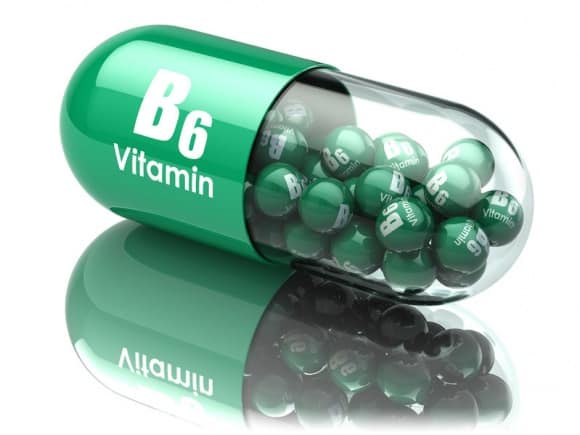We all know that vitamins are good for us… That’s why vitamins like Vitamin C, Vitamin D and many other vitamins have gained such large popularity in the mainstream health world. Now… Obviously vitamins like Vitamin C and D great and all, but there are most definitely some vitamins that most people don’t know about… Or that people know about and simply don’t know how healthy they are for you and your body.
Well, today we’re here to explore and teach you about one of those super important, lesser-known vitamins, this particular vitamin goes by the name of Vitamin B6. It’s also referred to as pyridoxine, it’s one of many B vitamins that make up the complex structure of B vitamins that are needed in order to produce energy in the body. Having a deficiency in Vitamin B6 is not something you want to have to deal with, it can lead to a wide array of health conditions.
So, let’s get started on the list, shall we? Because if you are deficient in B6, you should really see all the things that your missing out on, as well as what the protocol for taking it is, plus you’ll learn where you can find it in your food… Enjoy!
Tons Of Different, Natural Sources Of Vitamin B6:
Vitamin B6 can be found occurring naturally in many, many different, common foods. Plenty of which, most people are already eating on a regular basis… These sources include, but aren’t limited to, whole grains, peanuts, eggs, cheese, sunflower seeds, milk, fish, (fish like trout or tuna) wheat bran and brewer’s yeast. That’s definitely not all though, if you’re looking for vegetable sources of B6, you can find it in things like avocados, baked potatoes, watermelons, bananas, and plantains. As for good vegetable sources of the vitamin, your best friends are going to be carrots, spinach, lima beans, soybeans, avocados, tomatoes, and peas. Meat options aren’t exactly plentiful, butt they’re still there… Chicken breasts, pork loin and beef.
Vitamin B6 Deficiency and It’s MANY, MANY Consequences:
Having a deficiency of any kind in your diet is serious business, but having one in Vitamin B6 is really a HUGE deal. Some of the many consequences include a variety of medical conditions, such as kidney stones and Alzheimer’s disease. Heart disease and nervous system problems have also been shown to occur. If a woman is pregnant with a deficiency, it can lead to congenital abnormalities, some of which are spina bifida or cleft palate.
Nutritional Guidelines On How To Take Vitamin B6:
These are The National Institute of Health’s U.S. Recommended Daily Allowance (RDA) for vitamin B6.
1.3 mg daily for adults between the age of 19 and 50.
Over 50 = 1.5 mg daily.
Pregnant and lactating women = 1.9 to 2 mg daily.
The RDA for children is 0.1 for infants up to seven months of age, and 0.3 to 0.5 is for those up to three years old.
Teens should be adding approximately 1 to 1.2 mg to their daily diet.


























